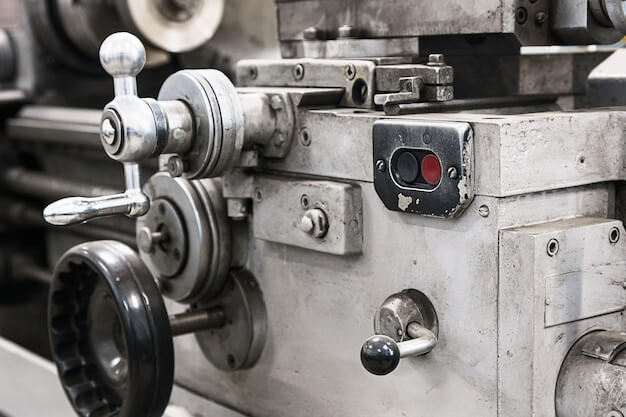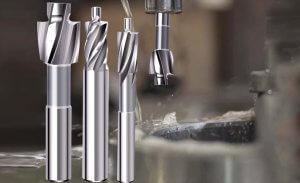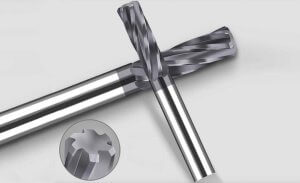Introduction to Precision CNC Machining
Precision CNC (Computer Numerical Control) machining can be defined as a manufacturing process in which pre-programmed computer software dictates the movement of machinery and tools, resulting in precise fabrication of components. The magic of precision CNC resides in its seamless ability to convert a blueprint into a perfectly replicated physical product with minimal manual intervention.
One everyday example that highlights this powerful technique is the production of our smartphones – their intricate internal circuitry boards are brought to life by precision CNC machining. The importance of this technology to the manufacturing sector cannot be underestimated – it provides unprecedented control over the dimensions, movements, speed, and other factors essential to producing consistent high-quality outputs.
- The role of blueprint: It serves as a guide for the machine, detailing the specifications and dimensions of the desired final product.
- The function of the CNC machine: By interpreting the blueprint through complex algorithms, it adjusts its movements and functions accurately to produce the end product.
- The Result: An accurate component with practically zero error, ensuring consistency and precision across all products.
The Role of Precision CNC Machining in HVAC Systems
Heating, Ventilation, and Air Conditioning (HVAC) systems play a paramount role in maintaining our daily life comfort by controlling the indoor climates. These systems regulate air temperature, humidity levels, and airflow within residential, commercial, or industrial buildings to ensure a comfortable living and working environment. The production of high-performance HVAC systems requires top-notch precision and efficiency, seamlessly offered by CNC (Computer Numeric Control) machining.
Precision CNC machining is employed in HVAC systems manufacturing to create intricate components like condensers, evaporators, compressors, and filters with impeccable accuracy. This technology eliminates human error, enabling rapid production of parts that fit perfectly without leaving room for discrepancies, thereby enhancing the HVAC system’s overall efficacy. Some primary roles of precision CNC machining in HVAC systems include:
- Fabrication of precise and complex parts: CNC machinery ensures consistent quality even in producing minuscule components with intricate design requirements.
- Greater productivity: It significantly reduces manual labor and accelerates the speed of production resulting in quicker delivery times.
- CNC prototyping: Quick and accurate prototypes can be created using CNC machines which helps in testing the functionality and feasibility of new HVAC design models.
- Reduction of waste material: Using pre-programmed software commands, unwanted wastage of raw material is minimized as the machine only uses what it needs to carve out the required component.
Thus, leveraging Precision CNC machining grants superior performance and long-term durability to HVAC systems by ensuring flawless assembly of their intricate subparts. Its application translates into cost-effective operations, decreased energy consumption, enhanced safety measures, and ultimately improved living conditions.
Advantages of Precision CNC Machining in HVAC Manufacturing
Precision CNC machining offers numerous advantages when utilized for the manufacturing of high-performance HVAC systems. First, it allows for remarkable manufacturing accuracy as each component is designed and created with utmost precision reducing errors significantly. This results in increased efficiency during assembly, saving time and resources. Second, the processes involved are speedy and programmed to work round-the-clock without fatigue, ensuring faster production rates than manual operations.
- Manufacturing Accuracy: With precision CNC machining, every element of an HVAC system is meticulously shaped according to exact specifications. As such, fitment issues that can negatively impact performance are virtually nonexistent–leading to reliable, high-performing HVAC units.
- Speed: Precision CNC machines operate continuously without breaks enhancing productivity offering quicker market realisation times; a key advantage particularly for large-scale HVAC manufacturers.
- Efficiency: The automated nature of these machines eradicate potential mistakes resulting from human error, which not only boosts production speeds but also limits wastage material thereby increasing overall manufacturing efficiency.
An example where precision CNC machining’s benefits directly impact HVAC quality and performance is its use within heat exchanger manufacturing. Heat exchangers are vital components of any HVAC system, needing stringent tolerances to perform optimally under varying environmental conditions. Precision CNC machining ensures exact measurements, yielding optimal heat transfer and greater energy efficiencies in the final product.
Types of HVAC Components Produced with Precision CNC Machining:
- Step 1: Precision CNC machining is used to produce a variety of HVAC components such as compressor parts, heat exchanger components, valve bodies, and sensor housings.
- Step 2: The high level of precision offered by CNC machining ensures that these components meet the stringent requirements for performance and reliability in high-performance HVAC systems.
Contemporary Innovations & Developments in Precision CNC Machining for HVAC Systems
Recent advancements in precision CNC machining technology have been transformative for the production of high-performance HVAC systems. The utilization of multi-axis CNC machines has enabled a higher degree of accuracy and precision, streamlining intricate processes like cutting, drilling, and shaping metal components with minimal waste. This level of fine-tuning has resulted in quieter, more efficient, and robust HVAC units that consume less energy and require fewer repair incidents.
- Digital Twinning Technology: This innovation enables virtual visualization of the entire manufacturing process before execution, consequently eradicating potential errors and ensuring optimal use of materials.
- Automation: Recent developments include automated feed systems using robotics leading to an increase in productivity and reduction in human error. As a result, there’s an improvement in the quality of output and faster turnaround times.
- Data Analytics: Advanced CNC machines harness data analytics to monitor efficiency levels, predict necessary maintenance cycles, optimize production schedules, and even identify potential staff training requirements. Thus, these tech-infused features lead to cost-effectiveness over time and enhanced durability of HVAC units.
In conclusion, these technological advancements enrich the final product; benefiting end-users by lowering their energy bills, increasing system longevity, reducing noise pollution, and improving overall comfort through temperature regulation precision.
Other Articles You Might Enjoy
- Is Copper the Right Choice for Electrical Component CNC Machining? A Detailed Analysis
CNC Machining of Electrical Components Utilizing Copper In the field of electrical engineering, Computer Numerical Control (CNC) machining plays an integral role, particularly in the development and manufacturing of electrical…
- Understanding Bead Blasting in CNC Machining(china machining Avery)
Bead blasting, a compelling term in the world of Computer Numerically Controlled (CNC) machining, is an influential process that plays a transformative role in optimizing and enhancing parts' aesthetic and…
- Understanding Bead Blasting in CNC Machining(cnc g code Jacqueline)
CNC (Computer Numerical Control) machining is a dominant method employed for multiple manufacturing systems across the globe. From healthcare to aerospace, this technology has revolutionized how we manufacture products. One…








